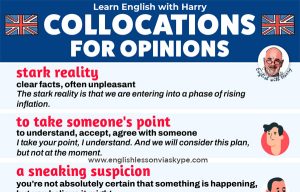Wait vs Await, how to use them correctly?
I have a very active account on Instagram @englishlessonskype and yesterday I received the following questions about WAIT vs AWAIT:
Hey Sir. I hope everything goes well with you. I wonder if you will do me a favour and explain the exact difference between WAIT and AWAIT? Your assistance is really appreciated. 🙏
egno94
Table of Contents
Harry
WAIT vs AWAIT
WAIT vs AWAIT

Share and help other students to improve English skills
Difference WAIT vs AWAIT
First of all, thank you for this question!
Many students get these two verbs confused 😕 so let’s review the difference between WAIT and AWAIT in detail.
👉 How to use Await
1. AWAIT is way more formal. We normally don’t use it in everyday conversations. It is mainly used in formal letters and emails. For example, if you are expecting a reply from someone, you can use it at the end of your letter/email:
I’m awaiting your reply.
I’m awaiting your answer.
2. The verb AWAIT must be followed by an object. You can’t use it on its own.
I’m awaiting two packages.
3. The verb AWAIT can only be used with things. We can’t use it when we’re talking about people.
I’m awaiting you. – Incorrect ❌
Intermediate to Advanced English Marathon

INSANITY: doing the same thing over and over again and expecting different results.
Albert Einstein
- What you'll learn:
- better understanding of more complex grammar structures
- advanced English vocabulary words
- British & American slang
- perfect your listening skills through practing different accents
- This marathon is for you if you're:
- stuck at an intermediate English level
- tired of confusing explanations
- a mature student
- shy & introverted
👉 How to use Wait
1. WAIT must be used with a preposition (FOR or ON)
Examples:
I’m waiting for a bus.
I had to wait for the water to boil.
Wait on here till the bus comes.
2. When we use WAIT we usually mention the length of time you that you have been waiting.
I’ve been waiting for you for ages.
3. We can use WAIT on its own.
We have been waiting and waiting to show our store to you and the day is finally here!
4. We can also use WAIT with another verb.
Yesterday, I waited in a queue for 2 hours to withdraw money.
5. We can use WAIT with both things and people.
I am waiting for Lucy to call me back.
While I was waiting for the bus, I read a magazine.
If you find WAIT and AWAIT confusing, I would suggest that you use WAIT FOR and use AWAIT only in your written English.
More Information
For more information on English grammar rules, English phrasal verbs and English idioms, check out the following links:
COMMON FAQ ABOUT ENGLISH FROM REAL STUDENTS
ENGLISH VOCABULARY FOR EDUCATION
As you can see here, many many students confuse WAIT vs AWAIT.
You will love these English lessons

10 English Expressions With Keep
Here you will learn 10 English expressions with Keep. Detailed examples. Audio lesson. Infographics.


Tips To Improve Writing Skills For Non-Native English Speakers
Great tips to improve writing skills for non-native English speakers. This advanced English lesson is a little bit different. I


English Collocations For Opinions
Learn English collocations for opinions. Advanced expressions for FCE, CAE, IELTS, CPE.